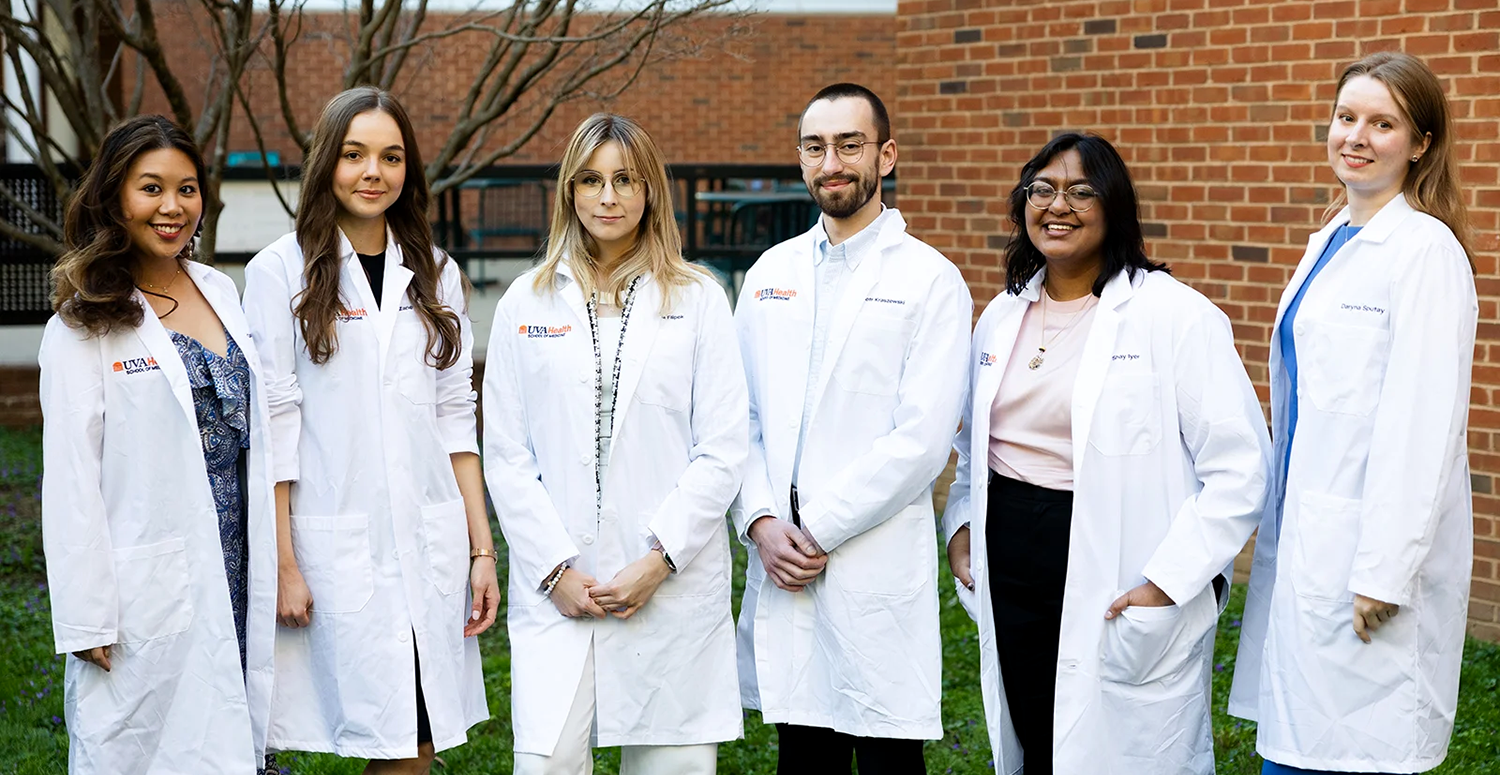Cell & Developmental Biology Graduate Program

About
Join us for Fall 2025!
The application for admission will be available online September 1, with a deadline of December 1 at 11:59pm, EST
Note: GRE scores are no longer required for applications.
The Cell and Developmental Biology Degree Program at the University of Virginia provides outstanding interdisciplinary training in the vibrant and rapidly evolving fields of Cell Biology and Developmental Biology. The goal of our graduate program is to equip a new generation of biomedical researchers with the skills needed to carry out independent and innovative cutting-edge research that addresses fundamentally important problems in cell and developmental biology. The Program provides a combination of lecture-based and advanced topical colloquia during the first two years, with active involvement in student-led journal club and research-in-progress talks, in parallel with active research in the area of interest. We seek to train our students for intellectual engagement with biomedical science at the highest level. To earn a Ph.D degree, students are required to carry out an independent, publishable research project in one of >30 participating labs https://med.virginia.edu/bims/programs/research-opportunities/cell-biology/ situated in one of the basic science departments in the School of Medicine or in the Biology Department.
46% of CDB program students matriculate through labs outside of the Department of Cell Biology, expanding the interdisciplinary nature of our training
86% of eligible CDB students are appointed to NIH institutional training grants
67% of our grads accept an academic postdoc; 24% accept a non-academic position
As part of our program, graduate students have the opportunity to explore fundamental questions in many areas including molecular mechanisms of cell function; the morphogenesis of cells, tissues and organs; regulation of growth, differentiation and proliferation; cell interactions in migration and embryonic patterning during development. In many cases these areas serve as the basis for more targeted interests in cell/pathogen interactions; tissue regeneration; functional dysregulation in cancer, atherosclerosis, and neurodegenerative diseases; and biotechnology.
The Program fosters an exceptional level of interaction and collaboration not only within the Cell and Developmental Biology degree program but also with colleagues across the School of Medicine, Graduate School of Arts and Sciences, and School of Engineering and Applied Science.
Join us for Fall 2025!
The application for admission will be available online September 1, with a deadline of December 1 at 11:59pm, EST
Note: GRE scores are no longer required for applications.
Sample of Student Publications
Satellite glial cell manipulation prior to axotomy enhances developing dorsal root ganglion central branch regrowth into the spinal cord
Brown RI, Barber HM, Kucenas S. Satellite glial cell manipulation prior to axotomy enhances developing dorsal root ganglion central branch regrowth into the spinal cord. Glia. 2024 Jun 22; DOI: 10.1002/glia.24581.
Collapse of late endosomal pH elicits a rapid Rab7 response via V-ATPase and RILP
Mulligan, R.J, Magaj M.M., Redemann S., Yap C.C., Winckler B. “Collapse of late endosomal pH elicits a rapid Rab7 response via V-ATPase and RILP.” (2024) J Cell Sci. 137(9):jcs261765. doi: 10.1242/jcs.261765
Delivery of Dissociated Islets Cells within Microporous Annealed Particle Scaffold to Treat Type 1 Diabetes
Roosa, C. A.*, Ma, M.*, Chhabra, P., Brayman, K., Griffin, D., Delivery of Dissociated Islets Cells within Microporous Annealed Particle Scaffold to Treat Type 1 Diabetes. Adv. Therap. 2022, 5, 2200064.
Endothelial cell cycle state determines propensity for arterial-venous fate.
Chavkin NW, Genet G, Poulet M, Jeffery ED, Marziano C, Genet N, Vasavada H, Nelson EA, Acharya BR, Kour A, Aragon J, McDonnell SP, Huba M, Sheynkman GM, Walsh K, Hirschi KK. Endothelial cell cycle state determines propensity for arterial-venous fate. Nat Commun. 2022 Oct 6;13(1):5891. doi: 10.1038/s41467-022-33324-7. PMID: 36202789; PMCID: PMC9537338.
Ecdysone exerts biphasic control of regenerative signaling, coordinating the completion of regeneration with developmental progression
Karanja F, Sahu S, Weintraub S, Bhandari R, Jaszczak R, Sitt J, Halme A. Proc Natl Acad Sci U S A. 2022 Feb 1;119(5):e2115017119. doi: 10.1073/pnas.2115017119. PMID: 35086929; PMCID: PMC8812538.
Isolation of Murine Retinal Endothelial Cells for Next-Generation Sequencing
Chavkin NW, Cain S, Walsh K, Hirschi KK. Isolation of Murine Retinal Endothelial Cells for Next-Generation Sequencing. J Vis Exp. 2021;(176):10.3791/63133. Published 2021 Oct 11. doi:10.3791/63133
Cep55: abscission boss or assistant?
Little JN, Dwyer ND. Cep55: abscission boss or assistant?. Trends Cell Biol. 2021;31(10):789-791. doi:10.1016/j.tcb.2021.07.006
Non-Canonical Wnt Signaling Regulates Cochlear Outgrowth and Planar Cell Polarity via Gsk3β Inhibition
Landin Malt A, Clancy S, Hwang D, et al. Non-Canonical Wnt Signaling Regulates Cochlear Outgrowth and Planar Cell Polarity via Gsk3β Inhibition. Front Cell Dev Biol. 2021;9:649830. Published 2021 Apr 16. doi:10.3389/fcell.2021.649830
